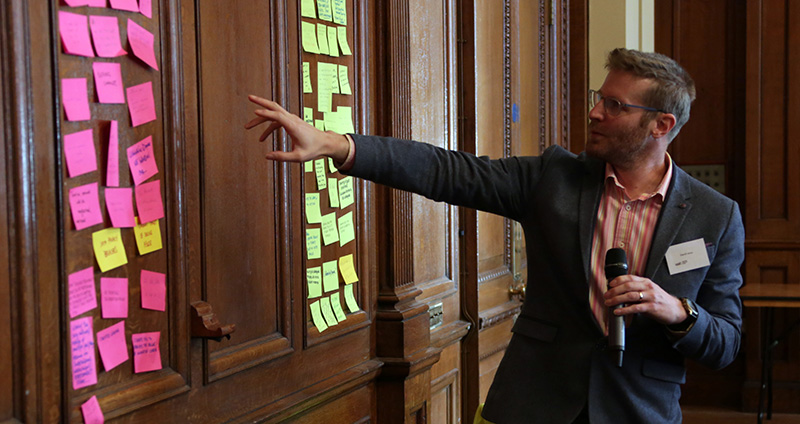Learning and Belonging: An Interview with David White

The upcoming EdMedia conference will be held virtually from July 6-8. The program contains three keynotes as part of the conference. Keynotes are a great way to connect with experts in the field and learn about current, cutting-edge research. David White is giving a keynote titled: ‘Belonging Online: What We Lost When We Went Digital and How to Design it Back In’. His keynote will take place on Wednesday, July 7th at 7:15 pm CEST.
Have you attended AACE conferences in the past? What is your connection to this community?
I haven’t attended in the past but I’m part of a community of online educational scholars, some of which you have invited to keynote in previous years.
What do you see as the future of research related to belonging in online education?
The pandemic has highlighted the need for online education to be so much more than ‘delivering the curriculum’. There is now a keen understanding that nurturing a sense of belonging needs to be considered as part of the design of online education. So I think the future for research in this area is going to be more emphasis on the broader student experience of online learning. This means a focus on the more emotive and identity forming aspects of the educational experience. What keeps students engaged and motivated but also, what helps students to feel they are part of a community?
What do you enjoy most about your current job?
I enjoy the questioning nature of art and design as discipline areas. I feel at home working with academics who are not trying to nudge students towards a ‘correct answer’. In essence, it’s about creating the conditions for collective creativity and critical thinking. That’s a fascinating challenge and one which applies to all subject areas in some form.
What does your current home office work space look like?
It looks like a tiny art gallery with a big computer in the corner. I like to paint, so most of the artwork in my home office has been created by me, but banned from the rest of the house. 🙂
I’m currently experimenting with self portraiture, so there are a couple of quite daunting paintings of me which I keep well out of the view of my webcam.
Is this your first virtual keynote? How do you plan to connect with your audience?
I have been teaching and speaking online for well over a decade now, so this is a format I’m used to but constantly experimenting with. Essentially I try to make sure the experience is different from watching a recording, which means finding ways to engage with the audience other than speaking.
Depending on the set-up I like to encourage people to text chat while I talk and will try to respond to questions and comments as I go. I also like to use whiteboards and similar tech as ways of gathering responses and opinions. If it’s a big session in a broadcast mode then I ask a key question at a couple of points during the talk. I find this keeps people engaged but it also gives me confidence that there is actually an audience out there listening. I love seeing a lively text chat while I’m speaking because it helps me to feel ‘present’ with the audience/group.
What are some of the practical strategies for promoting belonging and togetherness in digital platforms?
I’ve mentioned some of them above, but the key one would be to do work together. If online is a space where you only talk about work that is being undertaken elsewhere then it will never feel like a proper location, or place. All communities centre around some kind of shared endeavour. If you spend time online collaborating around the work itself then you will feel you belong to something. A community with no activity is never going to feel authentic.
What key insights do you hope attendees will take away from your keynote?
I hope that people will take away something they can apply in their own work. That might be a new way of engaging with students or a new emphasis in the design and management of education.
Overall I hope that people are encouraged and inspired. It’s been an extremely hard year and we need to take a moment to reflect on the hard work and innovative thinking which has helped to keep the education sector running.
